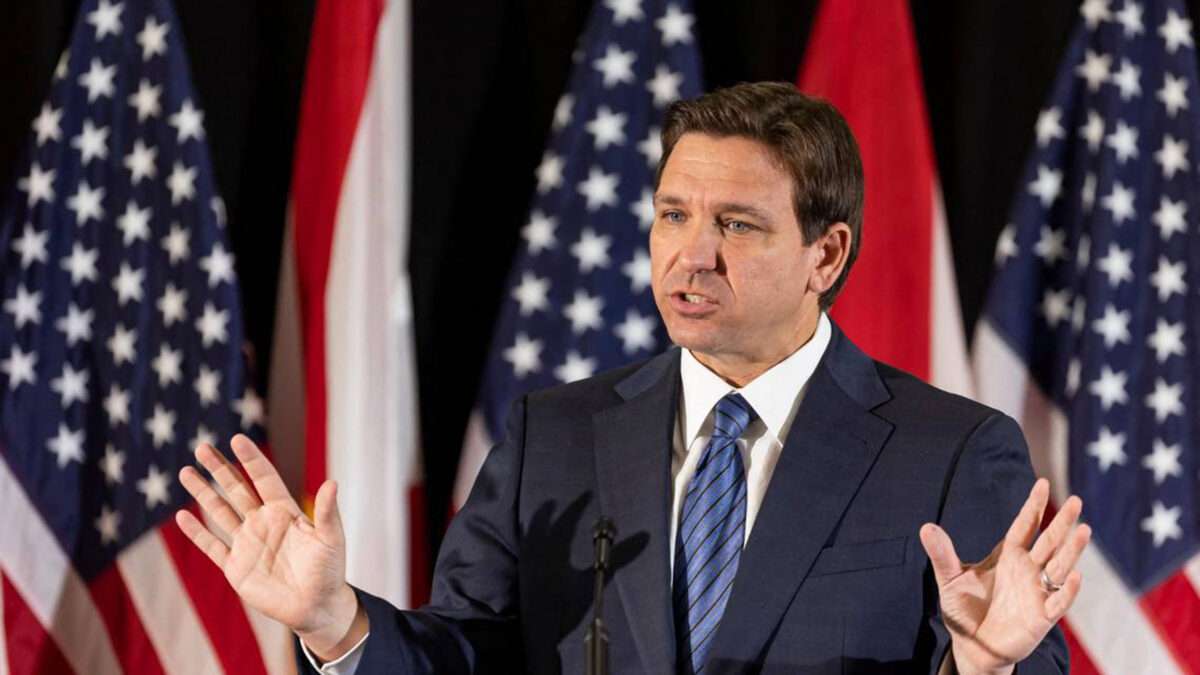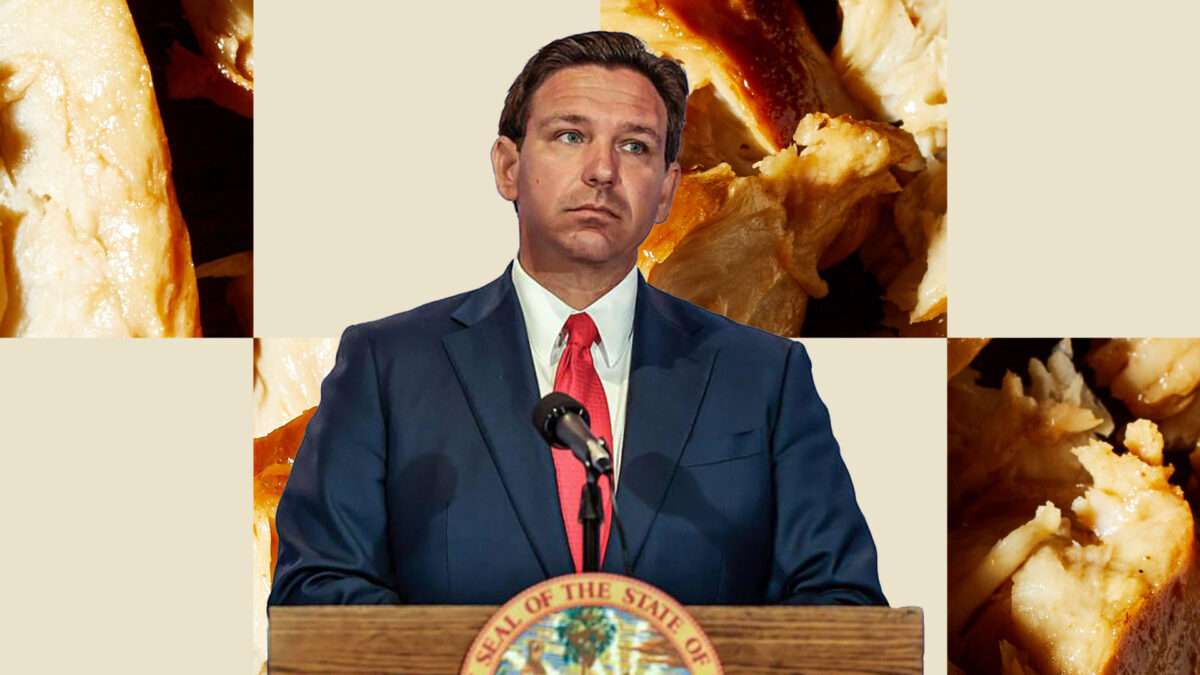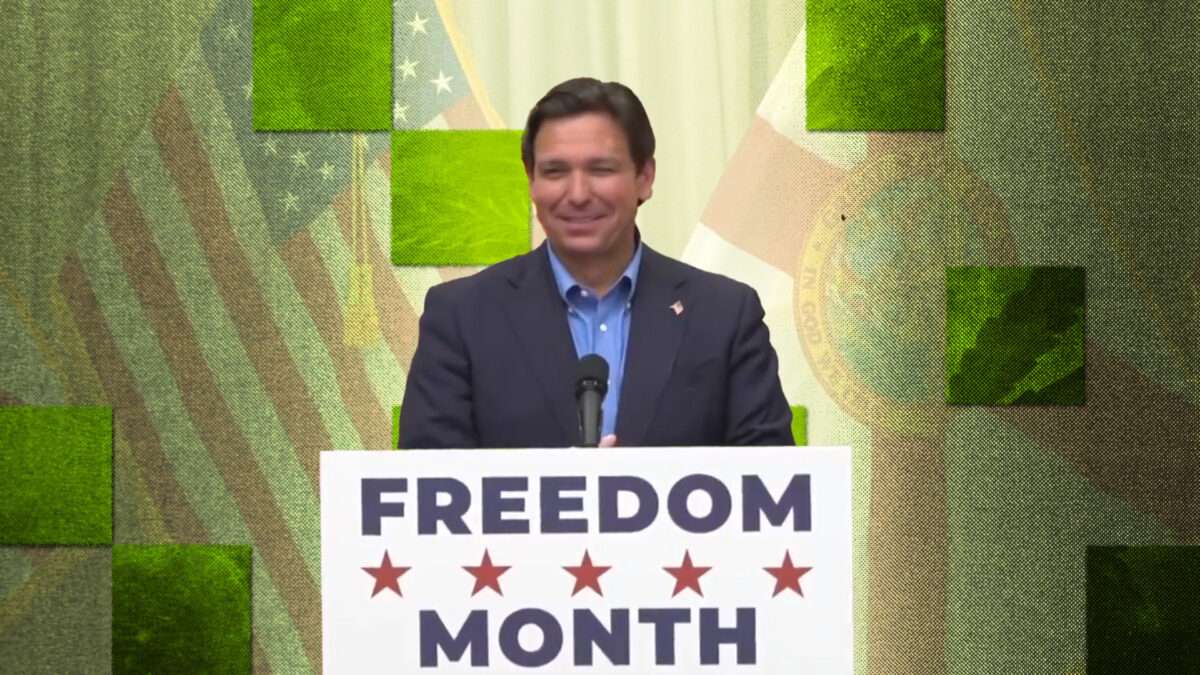Ron DeSantis Won't Stop Trying To Gut Florida's Public Records Law

Republican Florida Gov. Ron DeSantis' administration is once again trying to carve out broad new exemptions to the state's celebrated government transparency law.
This time, lawyers for DeSantis are arguing that call logs from a high-ranking staffer's phone aren't public record, even though the staffer was conducting government business, because it was a private phone.
The Tampa Bay Times first reported Thursday that lawyers for the DeSantis administration argued in court this week before a Leon County judge that the governor's office shouldn't be compelled to turn over call logs from DeSantis' Chief of Staff James Uthmeier's private cellphone.
The Florida Center for Government Accountability sued the DeSantis administration in 2022 for records concerning the migrant flights to Martha's Vineyard that DeSantis organized that year using state resources. The governor's office has turned over many records so far—and disclosed that Uthmeier and other staff used personal email addresses and phones rather than their state-issued ones—but it is currently defying a court order to release Uthmeier's phone logs.
"Florida is no longer the Sunshine State when it comes to transparency," says Michael Barfield, the Center's director of public access. "The public's right to know is headed into darkness."
Public records laws are commonly interpreted at both the federal and state levels, including in Florida, to cover records created on private devices and accounts if they concern government business. For example, the 2023 edition of the Florida attorney general's Government-in-the-Sunshine Manual states that "the mere fact that an e-mail is sent from a private e-mail account using a personal computer is not the determining factor as to whether it is a public record; it is whether the e-mail was prepared or received in connection with official agency business."
The manual also notes that "a public official or employee's use of a private cell phone to conduct public business via text messaging 'can create an electronic written public record subject to disclosure' if the text message is 'prepared, owned, used, or retained…within the scope of his or her employment or agency.'"
But DeSantis' lawyers are arguing that Uthmeier's call logs are "tertiary data," the Tampa Bay Times reports:
"If you hold that these tertiary data points are somehow public records that also have to be captured by a public records custodian, that is a sweeping — sweeping — interpretation of public records," DeSantis lawyer Christopher Lunny told Leon County Circuit Judge Lee Marsh on Tuesday.
But under that argument, Marsh said, all government business could be shielded from the public.
"We ought to just put out word, 'Let's do all of our business on private, bring-your-own cellphones," Marsh said. "Then we don't need public records laws because there'll be no public records, right?"
As Reason described in a magazine feature last year on Florida's Sunshine Law, the DeSantis administration is not just chipping away at the once-powerful public records law; it's taking a sledgehammer to it. State lawmakers have made the governor's travel records secret, and the DeSantis administration has also tried to invoke executive privilege over other documents, a privilege that is found nowhere in Florida's Sunshine Law and has never been claimed by previous governors.
DeSantis' office did not immediately respond to a request for comment.
The post Ron DeSantis Won't Stop Trying To Gut Florida's Public Records Law appeared first on Reason.com.




